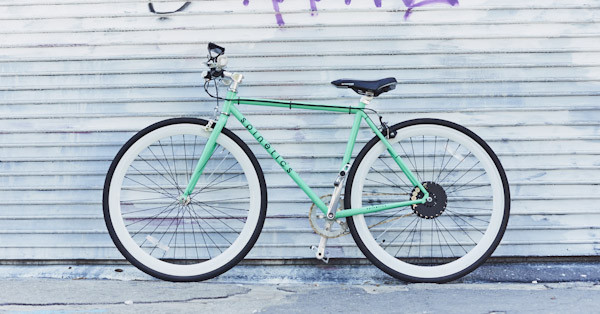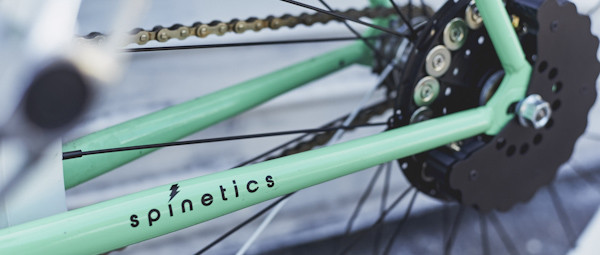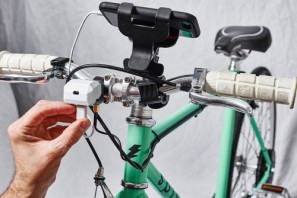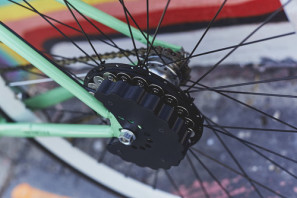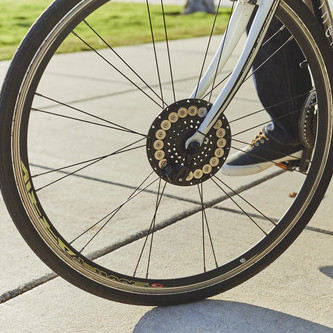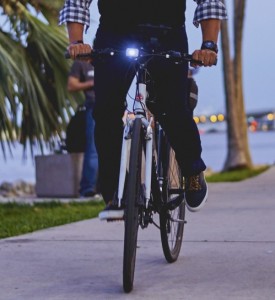When Nicolas Zamora’s friend left a bike at his house for safe keeping, they probably didn’t realize it was going to become a rolling science experiment. Thankfully this experiment didn’t involve any chopping or reshaping, instead Zamora’s friend will get their bike back fully intact with a frictionless, on-board generator installed.
Zamora and Bethany Hamm, the creators of Spinetics Inc., wish to promote healthy and green bicycle transportation by making it more convenient. The Cydekick was created to provide eco-friendly electric power for your mobile devices as you ride, without producing any drag for your legs to contend with.
The pair have completed all sub-assembly level testing, and should have a fully functional prototype within the next few weeks. Their Kickstarter campaign will begin raising money to put the Cydekick into production on July 30th…
The Cydekick contains magnets on both the rotor on your wheel and the portion that’s fixed to your frame, and creates power through electromagnetic induction. When the Cydekick’s rotor spins, the opposing magnetic forces create electrical energy without producing any mechanical friction. As the device is still in development, the creators haven’t yet measured exactly how much power the unit creates.
Two models will be available: The Cydekick Pro and the Cydekick Mini. No modifications or special tools are required to install either model, and they’re compatible with most commuter bicycles (without disc brakes). The rotor disc is zap-strapped to the wheel’s spokes, the generator mounts behind your axle nut or QR, and the electronics pod straps onto your handlebar. Both styles provide power for Cydekick’s integrated head and tail lights, but the Pro offers an additional USB port for charging a device as well.
The Pro mounts at the rear wheel, and its extra port can provide power phones, GPS, action cameras, etc. It has an internal battery that can be charged up either by pedalling or by plugging it into a wall socket. A high intensity LED head light (with steady and flashing modes) is built into in the handlebar mounted electronics pod, and a tail light is available as an option. The Pro’s battery bank stores more than enough power to ensure that both will stay lit each time you come to a stop. The complete Cydekick Pro weighs 1.08lbs, and will sell for about $150 USD.
The Cydekick Mini is a much smaller unit that mounts to the front hub to provide power for lights, but does not include a USB accessory port. Like the Pro, it’s electronics pod includes an LED head light and a tail light can be added. The head and tail lights do remain powered when you stop but for much less time versus the Pro- The Mini is estimated to keep your lights flashing for over 5 minutes at full stop, and begins recharging when you pedal away. The Mini weights 0.6lbs, and will sell for around $40.
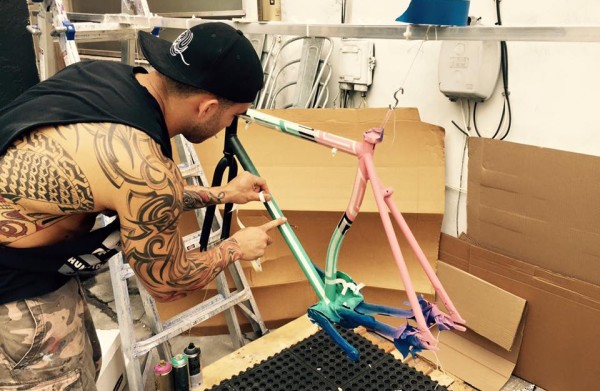
To bring some flair to their campaign, Spinetics has enlisted three street artists from the Wynwood area of Miami, FL (Rigo Leon, Duwerks, Ruben Ubiera) to design and paint a number of fixed gear bikes to be sold through Kickstarter. The company also intends to donate 3% of their profits to cancer research at the University of South Florida. The campaign won’t begin until the end of next month, but in the meantime you can check out Spinetics’ website for further info.
